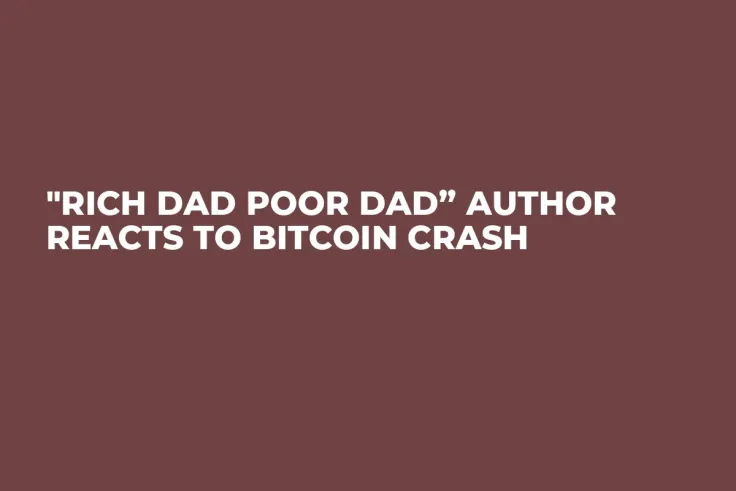
Disclaimer: The opinions expressed by our writers are their own and do not represent the views of U.Today. The financial and market information provided on U.Today is intended for informational purposes only. U.Today is not liable for any financial losses incurred while trading cryptocurrencies. Conduct your own research by contacting financial experts before making any investment decisions. We believe that all content is accurate as of the date of publication, but certain offers mentioned may no longer be available.
American businessman Robert Kiyosaki, who is known as the author of the "Rich Dad Poor Dad" series of personal finance books, has downplayed the severity of Bitcoin's most recent crash.
Kiyosaki claims that he is ready to buy more Bitcoin and precious metals following the most recent price crash. "Crashes are times
When the brave get richer and the cowards get poorer…. Because they sell or do nothing. The world is filled with poor cowards. Be smart.," he wrote in a follow-up social media post.
Earlier today, the largest cryptocurrency dropped to an intraday low of $51,331, reaching its lowest level since February.
The largest cryptocurrency has crashed in tandem with global markets. Earlier today, Japanese stocks entered into bear market, with the Nikkei 225 plunging by more than 12%. In fact, this is the worst single-day plunge recorded by the index since 1987. South Korea's Kopsi also plunged by more than 8%.
When it comes to US stocks, Nasdaq-100 futures have also dipped by 2.5%. Wall Street is now preparing for another painful week after a recent tech rout.
As reported by U.Today, Bitcoin succumbed to bearish sentiment together with other risk assets after recent US economic data stoked recession fears.
Due to the growing level of acceptance in mainstream finance, Bitcoin's correction with other assets continues to grow. "I've made this point before, but it seems likely that as crypto becomes a greater component of institutional/diversified portfolios, its correlation with other assets will grow, particularly in risk-off periods when investors need to raise cash by selling whatever's available," Joe Weisenthal said.
 Dan Burgin
Dan Burgin U.Today Editorial Team
U.Today Editorial Team